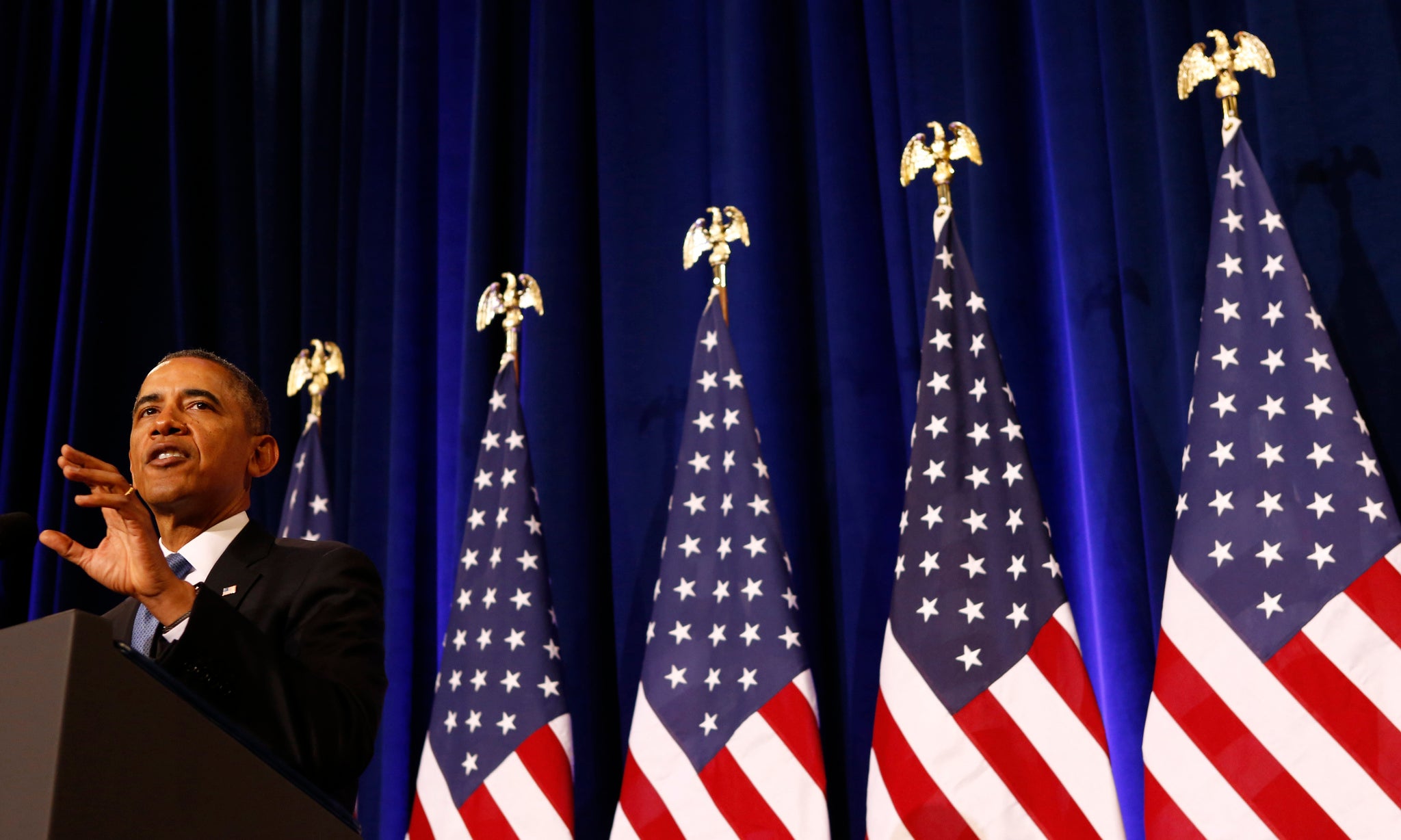NSA surveillance revelations: Barack Obama announces reforms to bulk data collection and spying on heads of states
Long-awaited speech unveiled some restrictions to America's surveillance policy, but Obama remained largely unapologetic

Your support helps us to tell the story
From reproductive rights to climate change to Big Tech, The Independent is on the ground when the story is developing. Whether it's investigating the financials of Elon Musk's pro-Trump PAC or producing our latest documentary, 'The A Word', which shines a light on the American women fighting for reproductive rights, we know how important it is to parse out the facts from the messaging.
At such a critical moment in US history, we need reporters on the ground. Your donation allows us to keep sending journalists to speak to both sides of the story.
The Independent is trusted by Americans across the entire political spectrum. And unlike many other quality news outlets, we choose not to lock Americans out of our reporting and analysis with paywalls. We believe quality journalism should be available to everyone, paid for by those who can afford it.
Your support makes all the difference.Seven months after the first bombshell revelations of whistleblower Edward Snowden, President Barack Obama announced new curbs on electronic surveillance by the US intelligence agencies, including an end to the mass storage of phone data, and to eavesdropping on friendly foreign leaders.
In a long-awaited 45-minute speech, Mr Obama sought to strike an elusive balance between the right of privacy and the need to protect the country. He repeatedly defended the work of the National Security Agency and the FBI, stressing that the US could not prevent terrorist or cyber attacks without the ability to penetrate digital communications.
There had been no evidence of abuse and, he said, “we cannot unilaterally disarm” in a dangerous world where some of the countries that professed the loudest outrage at Mr Snowden’s disclosures were doing the very same thing themselves. Nor would the US apologise for the fact it might be better than others at electronic espionage.
But the President admitted that “in the rush to respond” after the September 2001 attacks, the risk of government over-reach “became more pronounced” as new authorities were set up without public debate, and technological advance outstripped the ability to police it. This created “an inevitable bias” to collect more information about the world, not less – and, Obama declared, changes were now needed.
Among the most important of them, he urged Congress to set up a panel of privacy advocates for the top-secret Foreign Intelligence Surveillance (FISA) Court that handles intelligence cases, and announced that spying against friendly foreign leaders – as most controversially the case with German Chancellor Angela Merkel – would stop. But he warned that if national security warranted, the US reserved the right to listen in to anyone, anywhere.
The biggest change however will be in the handling of bulk telephone “metadata” stored by the NSA, the programme that has most outraged civil liberties groups in the US. Henceforth this information will no longer be held directly by the government. But where it will be kept is unclear, given that the phone companies themselves are not keen to keep it. And in any case, experts pointed out, one way or another this data will continue to be collected.
Initial reaction to the speech was mixed. Mr Obama said his reforms should give Americans greater confidence their privacy was not being abused. But Rand Paul, the Republican senator who has been among the NSA’s fiercest critics, said that Mr Obama deserved “an A for effort, but only a C for content.”
One thing however was clear – that Mr Snowden, currently a fugitive in Russia, can expect no early clemency. In his sole mention of the former intelligence contractor, Mr Obama noted drily that he would not “dwell on Mr Snowden’s actions or motivations,” but warned that if intelligence officials could take it into their own hands to make public what they knew, “we will not be able to keep our people safe.”
Join our commenting forum
Join thought-provoking conversations, follow other Independent readers and see their replies
Comments